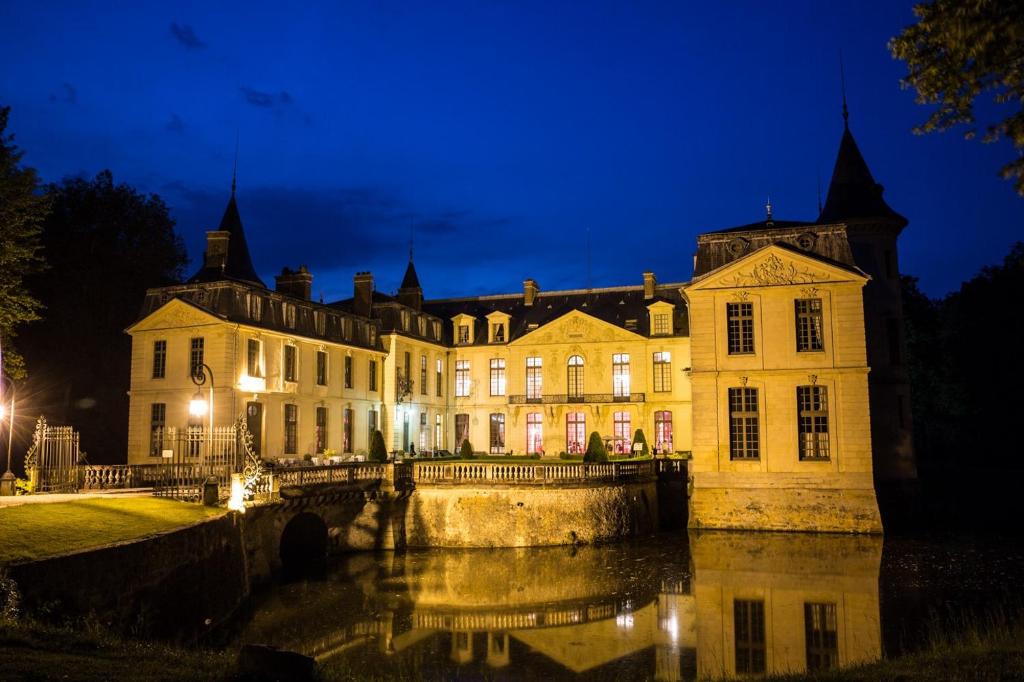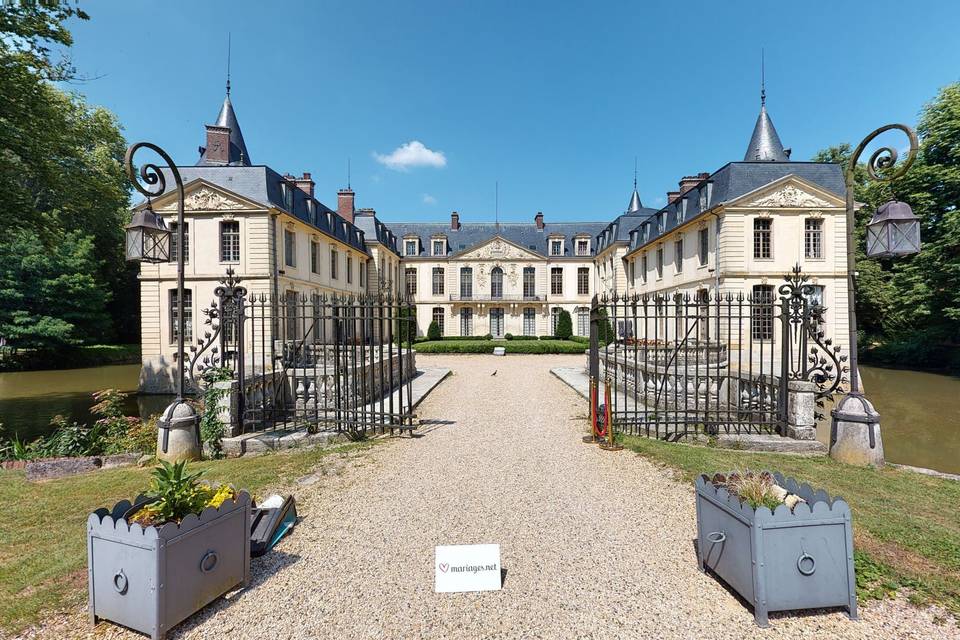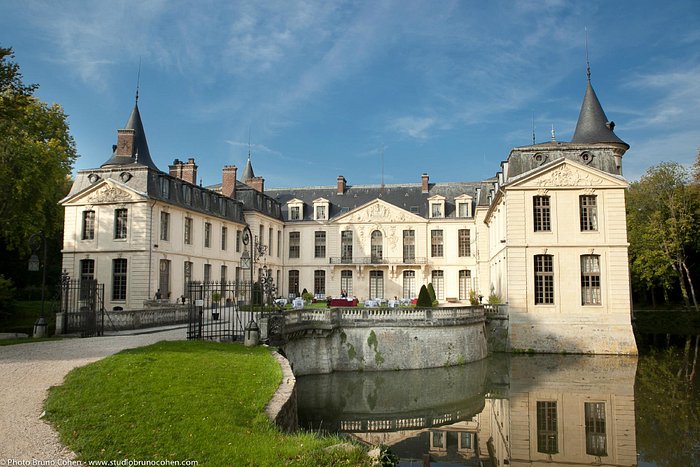A Storied Past
The origins of Château d’Ermenonville can be traced to the 13th century, when it was constructed as a fortress. Over time, it evolved from a defensive stronghold into a luxurious residence. It gained fame and significance during the 18th century when it became closely associated with the French Enlightenment.
One of the most important historical figures connected to Château d’Ermenonville is *Jean-Jacques Rousseau, the famed philosopher and writer. In the 1770s, the castle was owned by the Marquis René-Louis de Girardin, who was an admirer of Rousseau’s work and invited him to live at the château. Rousseau spent his final years in Ermenonville and is buried on the *Île des Peupliers, a small island on the estate’s lake. The site became a pilgrimage for Rousseau’s admirers, and it remains a point of interest for visitors today.

Architectural Beauty
Château d’Ermenonville’s architectural style reflects the various eras it has survived, blending medieval fortifications with Renaissance and 18th-century elements. The château itself is surrounded by beautifully landscaped gardens inspired by the English garden style, which was popular in the 18th century, emphasizing natural landscapes rather than rigid geometrical patterns. This style was championed by Girardin, who took great care in designing the estate’s parklands, drawing from Rousseau’s philosophy that nature should be appreciated in its pure form.

A Cultural Hub
Throughout its history, Château d’Ermenonville has been more than just a home for nobility; it has been a cultural hub, attracting intellectuals, artists, and writers. During the Enlightenment, the château was a gathering place for thinkers who sought to discuss philosophy, politics, and the arts. Even today, the château’s historical significance continues to attract scholars and enthusiasts of 18th-century French thought.

Modern Day Château d’Ermenonville
Today, Château d’Ermenonville operates as a luxury hotel and event venue, offering guests a chance to step back in time while enjoying modern amenities. Its rooms are tastefully furnished to reflect its historical character, and the extensive gardens offer a peaceful retreat for those looking to escape the hustle and bustle of urban life.
Visitors to Château d’Ermenonville can explore not only the château itself but also the surrounding Ermenonville Forest and nearby attractions like the Parc Jean-Jacques Rousseau, which offers an immersive experience into the life and ideas of the famed philosopher.

Conclusion
Château d’Ermenonville is more than just a stunning architectural landmark. It is a place where history, philosophy, and nature converge. With its deep historical roots and continuing legacy as a symbol of French intellectual and cultural life, it remains one of France’s most charming and historically significant estates. Whether you’re interested in the life of Jean-Jacques Rousseau, the Enlightenment era, or simply a peaceful getaway in a beautifully preserved historical setting, Château d’Ermenonville offers something for everyone.

